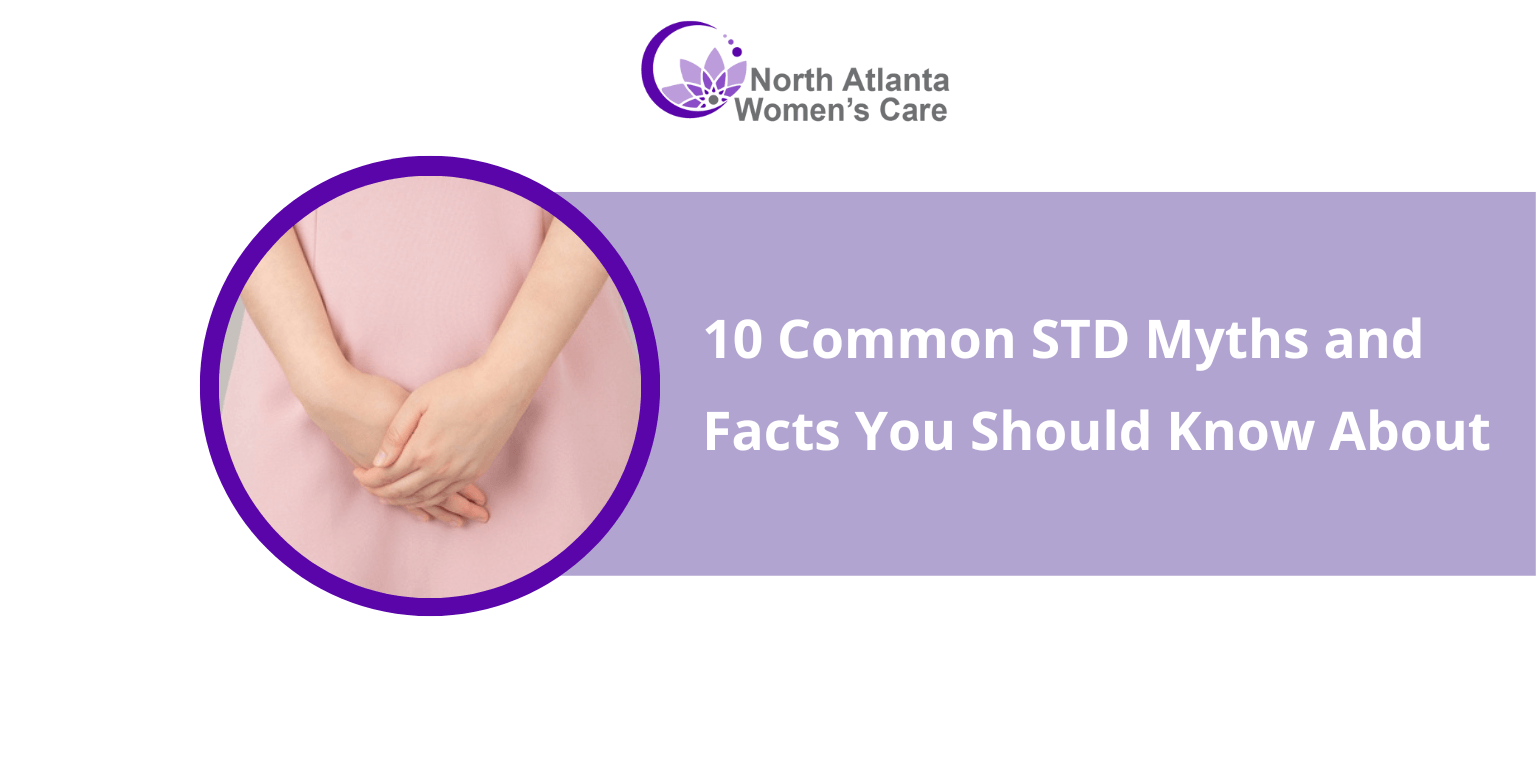10 Common STD Myths and Facts You Should Know About

Sexually transmitted diseases (STDs) are bacterial, parasitic, or viral infections that spread from one person to another through sexual contact. The CDC reveals that 20% of the U.S. population approximately one in five people had an STI. This makes awareness and education about STDs essential so that people can diagnose and treat them on time. Nevertheless, there are several misconceptions about STDs circulating across the internet, hiding facts behind myths.
Common Misconceptions About STDs
Here, we debunk common misconceptions about STDs to keep you informed about the truth.
-
Condoms Will Protect You Against STDs
Though condoms minimize the risk of transmission of STDs, they are not 100% effective in preventing them. This is because some STDs like herpes and genital warts can spread by skin-to-skin contact. In the absence of complete coverage of an infected sore or wart by a condom, the risk of transmitting sexually transmitted infections (STIs) such as those caused by herpes simplex virus (HSV) or human papillomavirus (HPV) is increased.
-
Oral Intimate Relations Does Not Cause STDs
STDs such as herpes, syphilis, gonorrhea, and HPV are transmitted by oral sex. An HPV infection transmitted through oral sex can cause warts in the throat and cancer in the head or neck. So, one can get STDs even from oral sex.
-
You Are Not at Risk for STDs Except If You Have Sex with Multiple Partners
You can get STDs even if you have sex with one partner or one time. So, despite the number of partners you have sex with, ensure to get tested for STDs and use appropriate protection every time you engage in sexual activity.
-
STDs Are Known by Their Symptoms
STDs are often asymptomatic and need to be diagnosed with blood tests. Though you are asymptomatic, you can still spread the infection to others. That’s why it is crucial to get tested for STDs before having sex.
-
Active Adults Are More Likely to Get STDs Than Teens
Teens and young adults have an increased risk of STDs because of engaging in unprotected sex or not getting proper health care advice concerning sexual activity. Besides, young women’s bodies are biologically vulnerable to STDs.
-
You Will Get STDs Only Once
Some STDs, such as gonorrhea and chlamydia, can recur even after treating it. For example, you can get infected again if you engage in sexual activity with someone who has them.
-
STDs Don’t Require Medical Intervention
Most STDs require appropriate medical treatment to prevent the aggravation of the condition. On the other hand, some STDs are chronic, meaning they cannot be cured but still need ongoing medical care to manage their symptoms.
-
Your Partner Does Not Need to Get Tested for STD Unless You Have It
If you don’t have an STD, it does not mean that your partner can skip STD screening. What if your partner has an STD, and you don’t know about it? To avoid contracting STDs, both partners should get tested before engaging in sexual intercourse.
-
You Will Not Get STDs If You Don’t Have Sex
Besides sexual contact, some STDs are spread through blood transfusions, simply kissing or touching the infected area, breastfeeding, or sharing needles with the infected. So, you can get STDs even without having sexual intercourse.
-
Hot-Tub Sex Minimizes Your Risk of STDs
Some people think chlorine in the hot tub kills the bacteria that cause STDs. However, hot-tub sex does not have any connection with reducing your risk of STDs. In fact, it may increase women’s risk of vaginal infections.
How to Prevent STDs?
The best ways to avoid contracting STDs are:
- Avoid contact with genitalia and exchanging body fluids.
- Get vaccinated for hepatitis B and HPV.
- Use condoms during vaginal and anal sex and dental dams during oral sex.
- Get regularly tested for STDs.
Besides, visit your healthcare provider if you experience symptoms such as:
- Burning or itching sensation in the genitals
- Pain during sex
- Unusual bleeding or discharge from the vagina
- Pain around the pelvis
- Bumps, sores, or blisters in the anus, vagina, or mouth
- Pain and burning sensation while urinating
Though STDs are not life-threatening conditions, leaving them untreated can result in serious complications like pelvic inflammatory disease and infertility. That’s why it is important to undergo regular STD screenings for timely diagnosis and treatment.
Suspecting You May Have STDs? Visit North Atlanta Women’s Care Today!
At North Atlanta's Women's Care, we specialize in providing personalized treatment and care for all types of STDs, whether gonorrhea, HIV, Syphilis, or chlamydia. So, you can count on us for the best medical assistance and advice to effectively manage your STDs and related symptoms. Schedule an appointment with us today for proper STD diagnosis and treatment.
Content Source: CDC
Comments are closed

